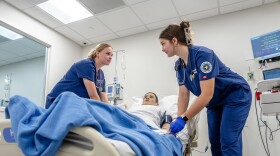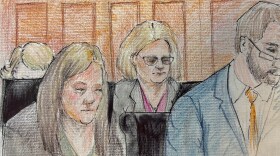As bars, movie theaters and other indoor entertainment venues shut their doors due to COVID-19, Wisconsin has seen a dramatic increase in people heading outdoors to try and find some relief from the pandemic.
A report by the Wisconsin Policy Forum, titled "Take It Outside: Pandemic Spurs Outdoor Pursuits," takes a deep dive into just how much of an anomaly 2020 was and what it could mean for outdoor funding going forward.
Jason Stein, research director for the Wisconsin Policy Forum, says the increase in outdoor pursuits was not just in one area, but in activities across the board.
“You could really look at almost anything — local cross-country ski permits, you can look at tax collections from sporting goods stores, you can look at the use of birding apps in Wisconsin, seems like almost anything that you look at that you can get good data for, it will show an increase in outdoor participation,” he says.
When it comes to funding public parks for these activities, Wisconsin leans fairly heavily on local governments to pay the bills. The state ranks 49th, only ahead of Alabama, in per capita state funding, but among the highest in local government spending on parks.
One of the biggest ways the state does provide funding is through the Knowles-Nelson Stewardship program. The program currently allocates over $33 million per year for borrowing in order to purchase or improve public land. In Gov. Tony Evers’ 2021-23 state budget, he has proposed expanding the program to $70 million per year.
“The tradeoffs that the state is looking at is, you know, what level of debt payments is it willing to shoulder to have the ability to set aside lands for public recreation and conservation, you know, as well as do projects so that public can better enjoy those lands,” Stein says.
Stein says there are other streams of revenue that the Wisconsin Department of Natural Resources has proposed such as sponsorships, installing more simple cabins to rent and increasing fees at high-use parks. He says those ideas will be considered but like an increase in Knowles-Nelson Stewardship, they all come with tradeoffs.
In the short term, the policy forum report suggests lawmakers might want to focus on retaining people whose interest in outdoor recreation was rekindled during the pandemic.
“It seems reasonable that the state may want to look at how they can hold on to some of these people,” Stein says. “It’s an opportunity in some ways, for not just a cost for government but also a potential revenue opportunity.”







